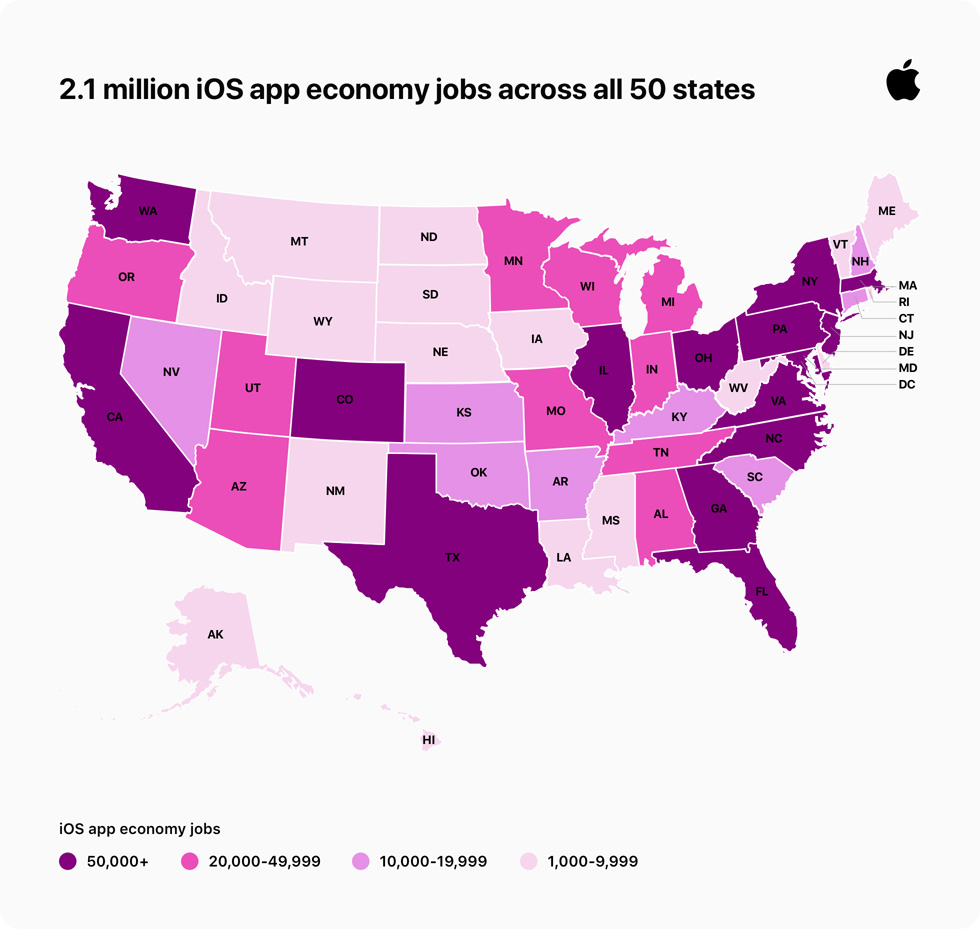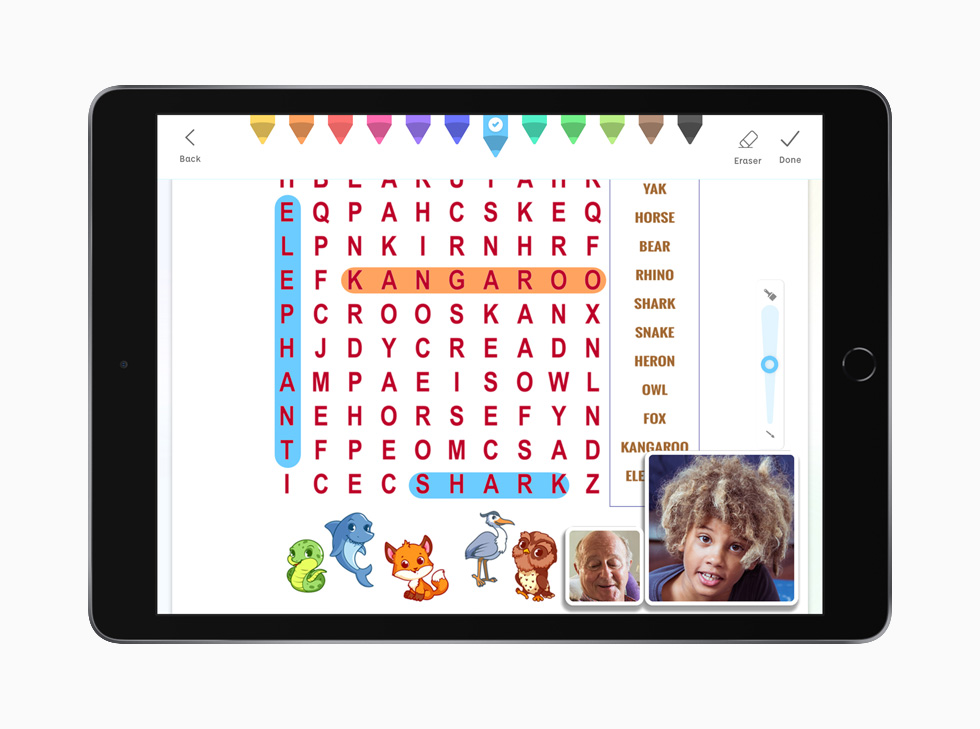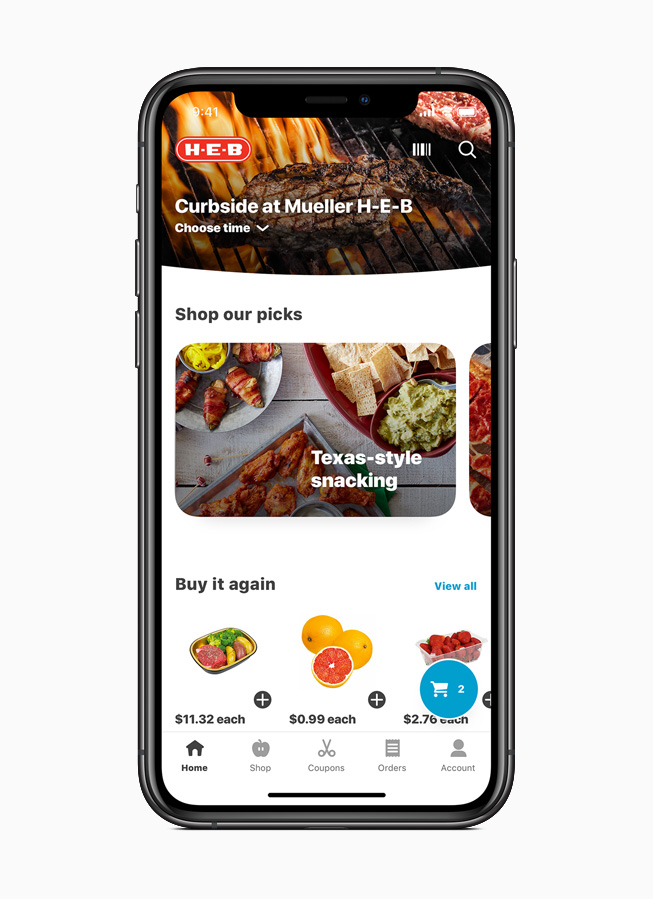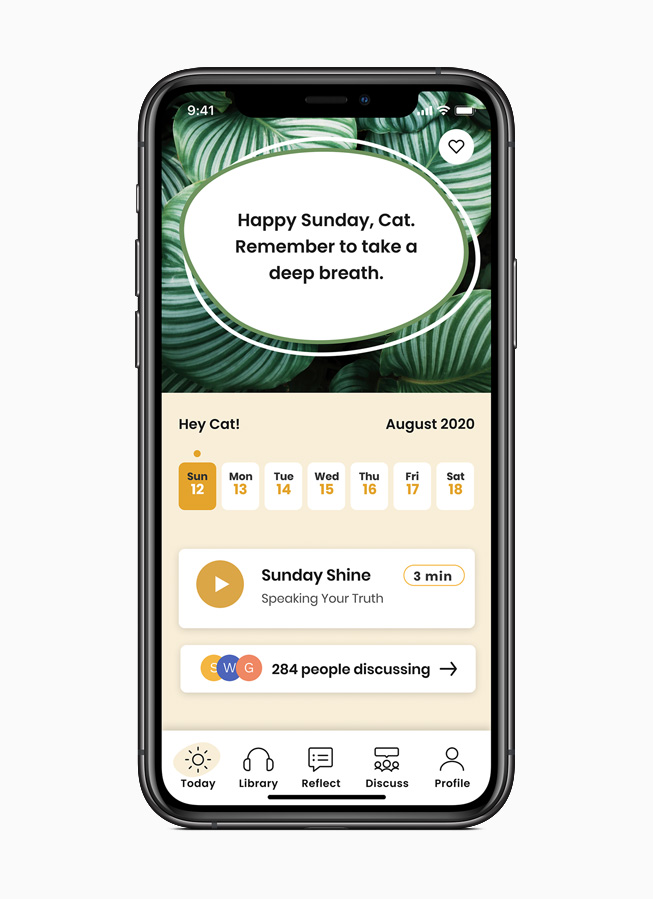AKTUALIZACE
02 září 2020
iOS app economy creates 300,000 new US jobs as developers adapt during pandemic
App Store ecosystem now supports over 2.1 million jobs across all 50 states
The iOS app economy has created nearly 300,000 new US jobs since April 2019, helping to provide opportunities for Americans of all ages even as COVID-19 continues to create immense challenges and uncertainty for communities across the country. Developers nationwide — including companies such as Caribu, H-E-B, and Shine — have adapted their businesses to make sure they can keep supporting their customers during a challenging time.1
Since the App Store launched in 2008, the iOS app economy has become one of the fastest-growing sectors of the economy. Despite the pandemic, the App Store continues to provide economic opportunities for entrepreneurs of all sizes, helping anyone with an idea reach customers around the world and take advantage of new opportunities that would never be possible without it. The App Store ecosystem now supports more than 2.1 million US jobs across all 50 states — an increase of 15 percent since last year — as part of the 2.7 million jobs Apple supports across the country.
Apps have become even more critical to Americans’ everyday lives as they seek out new and safe ways to learn, work, and stay engaged with friends and family during the pandemic. The App Store provides support for remote ordering from restaurants, vibrant and impactful remote learning for students, telehealth for patients and doctors, and digital commerce for small businesses. For the entrepreneurs who create these apps and the teams that design them, this produces lasting and sustainable economic opportunities, as evidenced by the double-digit growth in new app economy jobs across dozens of states since last year.
That growth has been experienced by companies large and small, including the team at Caribu in Miami, Florida. Caribu is an app that enables immersive, activity-rich video calls, allowing families and friends to stay close even from afar. Participants can draw together, read bedtime stories, solve puzzles, cook, and even visit museums in real time — connections that have become even more important in recent months. Caribu co-founders Maxeme Tuchman and Alvaro Sabido saw their business take off this spring, as people sought new ways to keep in touch. To respond to the tenfold increase in customers across the globe, Caribu’s team tripled in size, from 4 employees to 12, contributing to the 17,000 new app economy jobs in Florida.
“We’ve had incredible growth in the last year, and we’ve massively expanded our team to meet demand,” says Tuchman. “It means so much to us to not only be able to help connect families and friends at this difficult time, but to be able to provide stable, well-paying jobs to our growing number of employees as well. The App Store has given us a platform on which we can do both.”
In Texas, the app economy added 36,000 new jobs in the past year, an increase of nearly 30 percent. Contributing to that growth is H-E-B, a Texas-based retailer founded in 1905, which now operates 350 stores throughout the state and has added jobs to a staff of nearly 110,000. In the months before the pandemic, it launched the My H-E-B mobile app, which makes pavement pickup and home delivery of groceries and other essential items easy and streamlined. Since then, the app’s number of monthly active users increased an astonishing 1,050 percent and achieved its 2021 revenue goals in a matter of months. In response, H-E-B expanded its digital team by more than 150, and the team has recently added enhanced features like no-touch digital coupons, self checkout, in-app donations, and SNAP payment integration.
“Our focus on ease of use turned out to be even more important than we’d imagined, and we’re proud that our app is making it possible for more Texans to take care of their families during the pandemic,” said Mike Georgoff, chief product officer for H‑E‑B Digital. “Our company’s strength is our workforce — so much so that we call them partners. It means so much to us to grow that team every year as we expand our footprint and offer our customers new digital services.”
Caribu’s and H‑E‑B’s expansions and contributions to their local app economies are emblematic of what is taking place across the country, with states from coast to coast adding tens of thousands of jobs in the past year.
- Maryland added 25,000 new app economy jobs since last year.
- Michigan added 12,000 new app economy jobs, growing 34 percent since last year.
- Many smaller states, including Alabama, Nevada, and Oklahoma, saw double-digit increases in app economy jobs during the same time period.
As the app economy continues to grow, Apple is investing in educational programs and opportunities that help prepare learners of all ages for the app economy jobs of the future. With Swift Playgrounds, Everyone Can Code, and App Development with Swift, Apple gives anyone interested in learning to code the tools and guidance to get there. Today more than 9,000 K-12 and higher education institutions worldwide are using Apple’s coding curricula, including over 100 community colleges across the US. And Apple coding academies, accelerators, and Entrepreneur Camps give up-and-coming developers the opportunity to apply the latest technologies to their apps, build their businesses, and market their ideas to a global audience.
These include entrepreneurs like Naomi Hirabayashi and Marah Lidey, who attended Apple Entrepreneur Camp in 2019. Their app, Shine, helps make daily well-being and mental health resources easily accessible. In response to the COVID-19 pandemic, Shine has partnered with Mental Health America to offer a free Care for Your Coronavirus Anxiety resource and plans to launch a daily podcast. And this summer, Shine launched a new category on Black well-being and has prioritised content from Black creators.
Apple employs over 90,000 employees across all 50 states. The company is on track to fulfill its commitment to contribute $350 billion in the US over a five-year period. Apple also supports 450,000 manufacturing and supply chain jobs through its work with 9,000 American suppliers.
Sdílet článek
Images of iOS App Economy
- Job creation estimate based on research by Dr. Michael Mandel, Progressive Policy Institute, August 2020.




